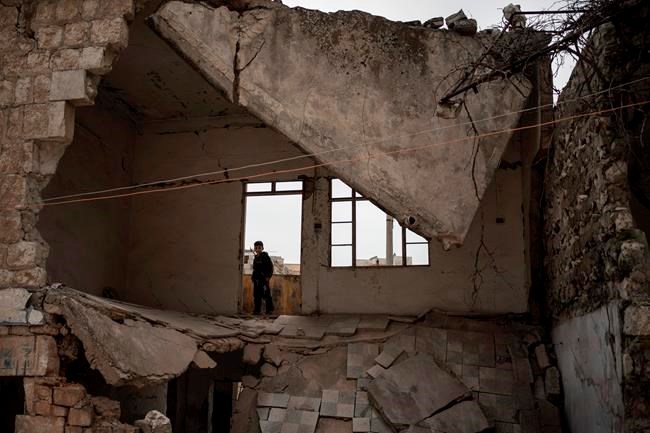OTTAWA — Relatives of a five-year-old Canadian girl stuck in Syria have one question as they head to court in an escalation of a nearly year-long effort to bring the child to Canada: Why won't the government help?
The girl known publicly as Amira was found on the side of a road last year after her parents and siblings were killed in an airstrike, and she was taken to a refugee camp
Her uncle, known as Ibrahim, has been trying nearly ever since to get her to Canada to join family in Toronto but the federal government has refused to help.
"Why won't they do it? It's a five-year old Canadian orphan girl and why won't they repatriate her in the face of repatriating thousands of Canadians all over the world, why not Amira?" the family's lawyer Lawrence Greenspon asked Tuesday after filing an application in Federal Court.
The family is arguing the federal government has failed to provide her with emergency travel documents and make an official request to the regional Syrian government to repatriate her and has refused to send a representative to assist in making that happen.
Taken together, this treatment violates her rights as a citizen, the family alleges.
Prime Minister Justin Trudeau was asked on June 29 why the federal government wasn't doing more to get Canadians out of Syria.
Trudeau said while there are countries that have diplomats on the ground in Syria, Canada is not one of them and it remains a dangerous place, especially in a pandemic.
"We will continue to ensure that we're keeping as a priority the protection of Canadians working abroad, particularly in this COVID context, but in every context," he said.
Global Affairs Canada spokesman John Babcock said in Tuesday that the government "is evaluating options to assist further in this case as we continue to advocate for the child's health and safety."
In a statement, he said immigration authorities have confirmed Amira's identity.
"This is an extremely complex situation and we recognize how difficult it is for this child and her family in Canada. Officials are in regular contact with her family and Minister (Francois-Philippe) Champagne has spoken to them directly."
Babcock repeated that the lack of Canadian diplomats in Syria, plus the pandemic, make the situation "extremely difficult."
The court documents point out that Amira's uncle has travelled to Syria on his own, with no protection, and was able to not just meet with Amira in the refugee camp but government officials there who agreed she would be allowed to leave once Canada gave the green light.
Lawyers also note that countries with no consular services in Syria have leaned on other countries or humanitarian groups to help repatriate their citizens.
Greenspon said the family is working to identify one such group that could assist in bringing Amira back, and time is of the essence.
She is currently being cared for by a non-governmental organization working inside the Al-Hawl camp, in a region of Syria controlled by Kurdish-led forces.
In recent weeks, the family has learned that the Syrian regime has been making inquiries about her, Greenspon said.
The regional government supports efforts to repatriate the child but the Syrian regime may not, he suggested.
"We don't want to think about the consequences of what might happen if the Syrian government went after Amira and tried to take custody of her," he said.
Amira is one of 47 Canadians, 26 of whom are children, stuck in northeastern Syria and Greenspon said the case could also pave the way for them to be able to come home.
The regional government, known as AANES, has urged countries to repatriate their citizens, in part because they no longer want to look after them, Greenspon said.
Many are being held on suspicions of collusion with Islamic State militants, and Greenspon said there has been the suggestion Amira's parents were involved in the group as well.
"Even if that's the case, so what?" Greenspon said.
"With Amira ... an orphaned Canadian, it really matters not to what extent her parents were sympathizers or involved with ISIS."
This report by The Canadian Press was first published July 14, 2020.
Stephanie Levitz, The Canadian Press




